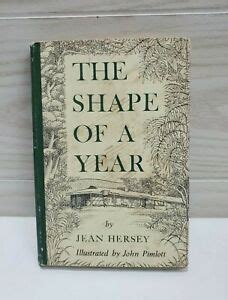A Quote by Georgette Heyer
I wish you did return my regard," he said. "More than I have ever wished anything in my life! Perhaps you may yet learn to do so: I should warn you that I don't easily despair!
Related Quotes
You're not eating anything," said Marilla sharply, eying her as if it were a serious shortcoming. Anne sighed. I can't. I'm in the depths of despair. Can you eat when you are in the depths of despair?" I've never been in the depths of despair, so I can't say," responded Marilla. Weren't you? Well, did you ever try to IMAGINE you were in the depths of despair?" No, I didn't." Then I don't think you can understand what it's like. It's very uncomfortable a feeling indeed.
A lot of people ask questions that they don't want to answer themselves, and if we're honest about the intimacy that we have with our parents, you wish them the best and you wish them the worst more than anybody else in the world. I think everyone has had a moment in their life where they wished a parent ill, and I think it's perhaps a very romantic idea that that doesn't happen.
I went to the woods because I wished to live deliberately, to front only the essential facts of life, and see if I could not learn what it had to teach, and not, when I came to die, discover that I had not lived. I did not wish to live what was not life, living is so dear; nor did I wish to practise resignation, unless it was quite necessary. I wanted to live deep and suck out all the marrow of life, to live so sturdily and Spartan-like as to put to rout all that was not life, to cut a broad swath and shave close, to drive life into a corner, and reduce it to its lowest terms.
There are some who wish to learn for no other reason than that they may be looked upon as learned, which is ridiculous vanity ... Others desire to learn that they may morally instruct others, that is love. And, lastly, there are some who wish to learn that they may be themselves edified; and that is prudence.
Madness is consistent; which is more than can be said for poor reason. Whatever may be the ruling passion at the time continues equally so throughout the whole delirium, though it should last for life. Madmen are always constant in love; which no man in his senses ever was. Our passions and principles are steady in frenzy; but begin to shift and waver, as we return to reason.
Tzu Li went to see Tzu Lai who was dying. Leaning against the door, he said, 'Great is the Creator! What will he make of you now? Will he make you into a rat's liver? Will he make you into an insect's leg?' Tzu-Lai replied, 'The universe gave me my body so I may be carried, my life so I may work, my old age so I may repose, and my death so I may rest. To regard life as good is the way to regard death as good. . . . If I regard the universe as a great furnace and creation as a master foundryman, why should anywhere I go not be all right?'
I mean, you can't make anything without making mistakes, is the truth, and I'm very grateful for those misses that I've had in my career at home, because you learn so much more from them than you ever do from the hits. You learn that you really have to work hard, which I wasn't really doing at that time. You sort of think 'I've cracked it, I'm doing it.'And you start to think perhaps you're more of a dude than you really are.
Only the man who has had to face despair is really convinced that he needs mercy. Those who do not want mercy never seek it. It is better to find God on the threshold of despair than to risk our lives in a complacency that has never felt the need of forgiveness. A life that is without problems may literally be more hopeless than one that always verges on despair.
Hope is a terrible thing, she said. Is it? Yes, it keep you living in another place, a place which doesn't exist. For some people it's better than where they are. For many it's a relief. From life, she said. A relief from life? Is that living? Some people don't have a choice. No and that's awful for them. Hope is better than misery, he said. Or despair. Hope belongs in the same box as despair. Hope is not so bad, he said. At least despair has truth to it.
My prayer for the new year is that I may have the courage and the stamina to let Life happen to me, to accept its joys and successes, and to take in stride the learning that stretches us and the growing pains. Perhaps, to put it simply, my wish for the New Year is: may we love more, live more, laugh more. And so may you!
Then he exploded. "No!" he said. That familiar injunction. I'd heard it so many times. "No. I cannot take this steel. It would not be correct." He opened his knife drawer. "It goes here," he said, "until you return."(That's how you leave: by never saying good-bye.)And I learned that: to return. I came back the following year and the year after that. I hope to return every year (after all, I may never have the chance to learn so much), until I have no one to return to. (301)
On the return flight from my mother in Florida , I sat next to a businessman who asked me what I did for a living. I said, "I write," and it seemed totally ridiculous in the face of what had just happened. I mean, I couldn't think of anything more pointless than telling stories. He asked, "What do you write?" I said, "I write children books."
It is not ignoble to feel that the fuller life which a sad experience
has brought us is worth our personal share of pain. The growth of higher feeling
within us is like the growth of faculty, bringing with it a sense of added strength.
We can no more wish to return to a narrower sympathy than painters or musicians
can wish to return to their cruder manner, or philosophers to their less complete formulas.
He is not famous. It may be that he never will be. It may be that when his life at last comes to an end he will leave no more trace of his sojourn on earth than a stone thrown into a river leaves on the surface of the water. But it may be that the way of life that he has chosen for himself and the peculiar strength and sweetness of his character may have an ever-growing influence over his fellow men so that, long after his death perhaps, it may be realized that there lived in this age a very remarkable creature.






































